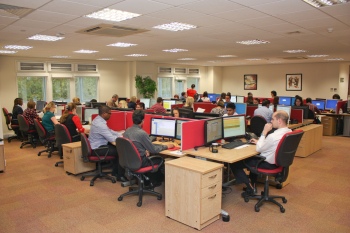Tackling billing errors

Utility bills are rarely less than they should be — and can be very much more than actual consumption. Martin Theobald of Team EAA takes up the story.
In the first six months of 2013 our energy bureau identified utility billing errors of £2 123 015. Surely, that figure alone is a good enough reason to inspire other organisations to take the time to check their commercial utility bills.
When we talk about billing errors, we see a wide variety of charging discrepancies — from reclaiming £82 104 after identifying unusually high gas consumption on gas bills for one building on behalf of Worcestershire Health & Care NHS Trust to £113 120 from 937 individual billing queries across a variety of sites for Sovereign Housing Association.
In a nutshell, you could experience utility bill errors at just one site or across your entire portfolio. We know only too well that it can be a time-consuming job checking every utility bill, but the evidence speaks for itself that what you agree in your 12-month contract isn’t always what you will be charged for.
Are there really quick and effective routes to saving money on energy invoices? If the answer is yes, why are more organisations not taking advantage of them?
Industry Knowledge: It is not unheard of for utility companies to hit the news headlines for contravening OFGEM guidance on publishing utility invoices. Often, the end consumer is left confused by the invoice that lands on their desk; their desire is only to ensure accuracy and timely payment.
Do your research, as there are all manner of intricacies that can make up gas or electricity invoices (DUOS, TUOS, BSUOS, TRIAD etc. — and that’s only electricity!). Without the base knowledge, it is difficult to understand the acronyms you are dealing with, so it’s imperative to sharpen up your knowledge.
Understand your bills: We know that your gas and electricity invoices consist of many complex line items that make up your final amount paid. As a minimum, you should be aware of what that final unit rate is going to cost. If the bills don’t make sense, talk to your supplier; the earlier you spot a discrepancy the easier the task of claiming back costs will be.
Know your contracts: You have agreed with your supplier, a balance of what you are prepared to pay and what they will charge. Unfortunately this isn’t guaranteed. Familiarise yourself with the agreed tariffs for every site and with every supplier.
Build relationships with your suppliers. Love them or loathe them, you are likely be locked in with a supplier for a minimum 12-month contract. They rely on you to pay; conversely, you rely upon them to handle your queries and any billing discrepancies that are identified. As tempting as it may be to escalate your complaint each time you think a bill may be incorrect, we often find a good working relationship often leads to quicker query resolutions.

Build your data sets: Put simply, the more utility data that you have on any account, the more likely you are to start identifying billing errors. By having a database of invoices you can start to establish profiles of how you expect sites to use their energy throughout the year; by running some simple reports, you will then be able to identify any sites with potential energy wastage. Through an auditable historic data set and records, this can also assist is conveying your potential queries to suppliers.
Right tools for the job: Within our energy bureau, we handle hundreds of thousands of invoices per year. All invoices are processed quickly and accurately through our M&T software, set up with the necessary alerts to highlight any potential errors. Immediately you have the capability of automated checking and built in validation.
Always take meter readings: We hear stories from customers who have meters installed, but new suppliers can’t access the data. Until the AMR (automatic meter reading) market becomes more transparent, the data becomes 100% reliable and the costs come down, there is still going to be a need for customers to take meter readings.
AMR is fantastic for energy monitoring – but make sure that you are cross checking your consumption at the meter against the consumption on your bill. If you are taking meter readings, ensure that these are submitted to your supplier, check the bills to ensure the meter readings are being used and that they are correct. Suppliers rarely underestimate an invoice on your behalf — so ensure that your invoice is as accurate as possible to keep your money in your account, not theirs.
Make your people aware of their usage: One of the main drivers behind an organisation saving energy can be the habits of the building occupants. More and more we are engaging with customers that want to communicate their energy data and educate end users about their individual impact on the organisations energy consumption. Through presenting the data to them publically (via an energy and carbon web dashboard, intranet, posters, internal news updates) clients can start to drive down energy consumption and, ultimately cost.
There may be no magic formula to quick and effective ways of saving on your energy bills — but by making sure that your organisation understands what they are paying and ensuring they know why they are paying it, the savings are there to be made.
Martin Theobald is bureau services manager with Team EAA Ltd.








